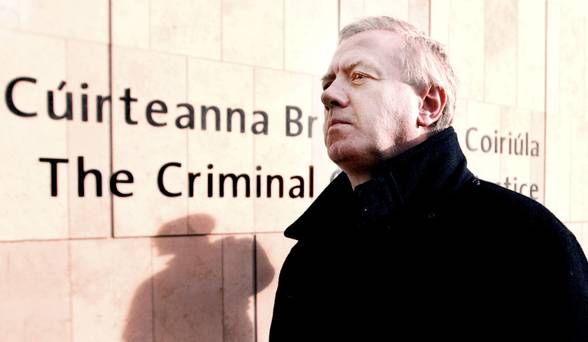
We’re all familiar with the recent scandal that was Eamonn Lillis’ release from prison after serving just over five years for the manslaughter of his wife. The man’s face was on every newspaper in the country in the days leading up to his release.
Lillis was branded a “wife killer” in every headline, as though it was an extension of his name. It was clear the public were outraged. Not only was Lillis a free man after a pitiful jail term, but was over a million euro richer due to the division of his estate.
Lillis was sentenced to manslaughter as the jury found he had not meant to kill his wife. It was also discovered that he had changed his clothes covered in his wife’s blood and hidden them before calling an ambulance for his dying spouse.
Was five years really the appropriate retribution?
It is an opinion held by many in Ireland that jail terms are too short and prisons are all too willing to hand out suspended sentences for good behaviour, as was the case with Lillis.
In Ireland the maximum sentence a person can get is life imprisonment. Contrary to the name, life imprisonment in Ireland usually only averages eighteen years. This in comparison with a country like America, where a determinate life sentence means life and the death penalty still exists in some states, seems pretty mild. Is the Irish policy of leniency working or would it be more effective to adopt a more stringent approach?
In 2013, a young man called Dominic Hayes hit a chef on the back of the head with a hammer. When the chef lost consciousness, Hayes dragged him to a nearby alley, hit him again, broke his collarbone and stole his packet of cigarettes. He was sentenced to three years in prison but is expected to be released early for good behaviour, likely walking free by the end of the year. This comes after Hayes was diagnosed with a psychotic disorder and has a high risk of reoffending, according to a psychologist’s report.
Under three years for a potentially fatal, violent crime. Five years for manslaughter. The question is, do these snappy sentences actually work or are they serving a financial, not societal purpose?
It’s no secret that Ireland’s prison system is under strain due to overcrowding. As of December 2014, prisons around the country were at 94% capacity. Some prisons, like Cork prison, had extended capacity and had reached 104%, primarily due to the fact that over 80% of prisoners are serving time for minor offences. Judges are aware of the limited space. Judges are also aware of the €65,359 it costs to jail a prisoner for a year.
Should people be taking up prison space and resources for not paying their TV licence, when potentially dangerous criminals are being released early every day? Are the practical elements of law enforcement preventing criminals from serving the time they deserve? It seems to me that the justice system isn’t serving society, but themselves.
Rebecca Lumley




Leave a Reply